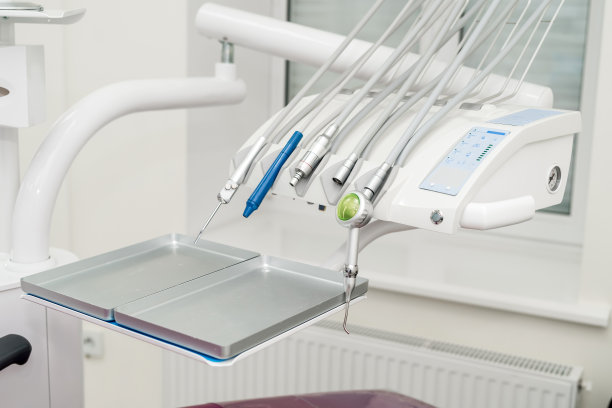Summary: Dental fillings are a common dental procedure that require careful preparation and awareness of essential precautions to ensure optimal oral health post-treatment. This article outlines the critical steps individuals should take before undergoing a dental filling, emphasizing the importance of selecting a qualified dentist, understanding the materials used, preparing for the procedure, and following aftercare instructions to aid in a smooth recovery. Adhering to these guidelines can significantly improve outcomes and maintain dental health in the long run.
1. Choosing the Right Dentist for Your Filling

Selecting a qualified dentist is paramount when it comes to dental fillings. It’s important to opt for a professional with extensive experience and training specifically in restorative dentistry. A skilled dentist can assess the condition of your teeth accurately and recommend the most suitable filling options tailored to your needs.
Moreover, patient reviews and testimonials can provide additional insights into a dentists competence and comfort level. Investigating their credentials and seeking recommendations from family or friends can lead you to a reputable practitioner who is skilled in providing fillings.
Lastly, during your initial consultation, dont hesitate to ask questions regarding their techniques, as well as the types of materials they use. This open communication can help you feel more at ease and informed about your procedure.
2. Understanding Filling Materials and Their Benefits
There are several types of materials used for dental fillings, each with unique properties and benefits. Amalgam, a common and durable option, consists of metals like silver and mercury, making it suitable for back teeth where pressure from chewing is greatest.
Conversely, composite fillings deliver a more aesthetic solution as they can be color-matched to your existing teeth, making them ideal for front teeth or visible areas. Understanding the differences between these materials can help you in discussing options with your dentist and making an informed choice.
Additionally, newer materials such as glass ionomer provide chemical bonding benefits and release fluoride, significantly enhancing cavity protection. Knowing the advantages and disadvantages of each will aid in a comprehensive discussion about which filling material best suits your dental health needs.
3. Preparing Mentally and Physically for the Procedure
Preparing for a dental filling not only involves physical readiness but also mental preparation. Understanding what to expect during the procedure can significantly reduce anxiety. Familiarizing yourself with the process, such as the numbing shots and the filling procedure itself, will help you feel more comfortable.
Additionally, consider eating a light meal prior to your appointment to prevent discomfort during the procedure. Avoiding overly sugary or hard foods can further help ensure that your mouth is prepared for the treatment ahead.
Moreover, it’s essential to communicate any medical conditions or medications you are taking with your dentist. Such transparency enables them to tailor their approach to accommodate your health needs effectively, ensuring both your safety and comfort throughout the process.
4. Post-Procedure Care for Optimal Healing
After the dental filling procedure, it’s vital to adhere to recommended aftercare instructions to promote healing. This may include avoiding hot or cold foods for at least 24 hours to prevent sensitivity and discomfort as the anesthetic wears off.
Additionally, practicing good oral hygiene following your procedure is crucial. Brushing and flossing regularly can help prevent further decay near the filling and contribute to your overall oral health. Using a soft-bristled toothbrush may also alleviate sensitivity around the newly filled area.
Lastly, scheduling follow-up appointments to monitor your fillings and overall dental health is necessary. Regular check-ups will ensure that any potential issues are addressed promptly, thus maintaining optimal oral health in the long run.
Summary:
Understanding the essential precautions before undergoing a dental filling procedure can significantly enhance your oral health and dental experience. Choosing the right dentist, comprehending the materials involved, physically and mentally preparing for the procedure, and following proper aftercare are all critical steps that contribute to a successful outcome. Prioritizing these aspects helps secure a healthier smile.
This article is compiled by Vickong Dental and the content is for reference only.
Vickong Dental
Vickong Dental is a large medical group established in Hong Kong in 2008 by professors from well-known medical universities in Guangdong and Hong Kong, as well as medical doctors from key national '985' universities (including Master's supervisors and senior professors). The chain of branches brings together expert dentists with PhDs and Master's degrees from Hong Kong and Mainland China, committed to providing high-quality dental treatment.
"Vickong Dental Practices the University Motto of 'Healing and Serving Society,' with a Stable Operation for Sixteen Years. It Has Been honored with Hong Kong Enterprise Leaders's Choice,' and is a Global Trusted Implant Center for the Nobel Implant System. Recommended by Hong Kong Metro Broadcast and Guangdong Television, it Serves Customers from Over Thirty Countries and Regions, Gaining the Trust and Favor of Citizens from the Guangdong-Hong Kong-Macau Greater Bay Area and Surrounding Cities.

Thousands of customers' unanimous praise
The most recognized and highly recommended dental service by customers in the Guangdong-Hong Kong-Macau Greater Bay Area
We Ensure You Receive Detailed Care and Attention Here
Hong Kong standards, Shenzhen prices, Your Trusted English-speaking dentists

Vickong Dental Medical-Grade Instrument Disinfection Process
Vickong Dental Medical-Grade Instrument Disinfection Process

Vickong Dental Chain: A Warm and Comfortable Environment for Treatment






Appointment Hours

Q&A
Why choose Vickong Dental?
Vickong Dental practices the university motto 「Medicine to Benefit Society」, with each branch bringing together highly qualified dentists with doctoral and master’s degrees from Hong Kong and the Mainland, and has maintained seventeen years of steady operation。Recipient of 「2024 Hong Kong Enterprise Leaders Brand」, 「2025 Hong Kong Enterprise Leaders Brand」, a Nobel Biocare Global Trusted Implant Center, and a brand recommended by Metro Radio Hong Kong and Guangdong TV。
To date, we have served customers from more than thirty countries and regions,earning exceptionally high word-of-mouth recognition and trusted recommendations from residents across the Guangdong-Hong Kong-Macao Greater Bay Area and surrounding cities
We have eight major branches in Zhuhai、Shenzhen,and a consultation and service assurance center in Hong Kong,so you can book a free consultation at any time for any questions,which is very reassuring.
If I do not accept the quotation after the CT scan, will I be charged??
No! As long as the actual treatment has not started, you will not be charged any fees.
Will there be any additional charges during the treatment process?
No, there won’t be any additional charges. Before treatment begins, we will clearly explain the treatment plan and its corresponding fees. Only after the patient agrees and signs the consent form will we proceed with the dental service.
Can I pay in Hong Kong dollars?
Yes. Vickong Dental accepts payment in Hong Kong dollars. The amount will be converted based on the exchange rate of the day, and the applicable rate will be clearly communicated to you in advance.
Can I reschedule my appointment at any time?
Yes. Please contact us via **WeChat** or **WhatsApp** as early as possible, providing your original appointment time and details, along with your preferred new date and time slot for rescheduling.













